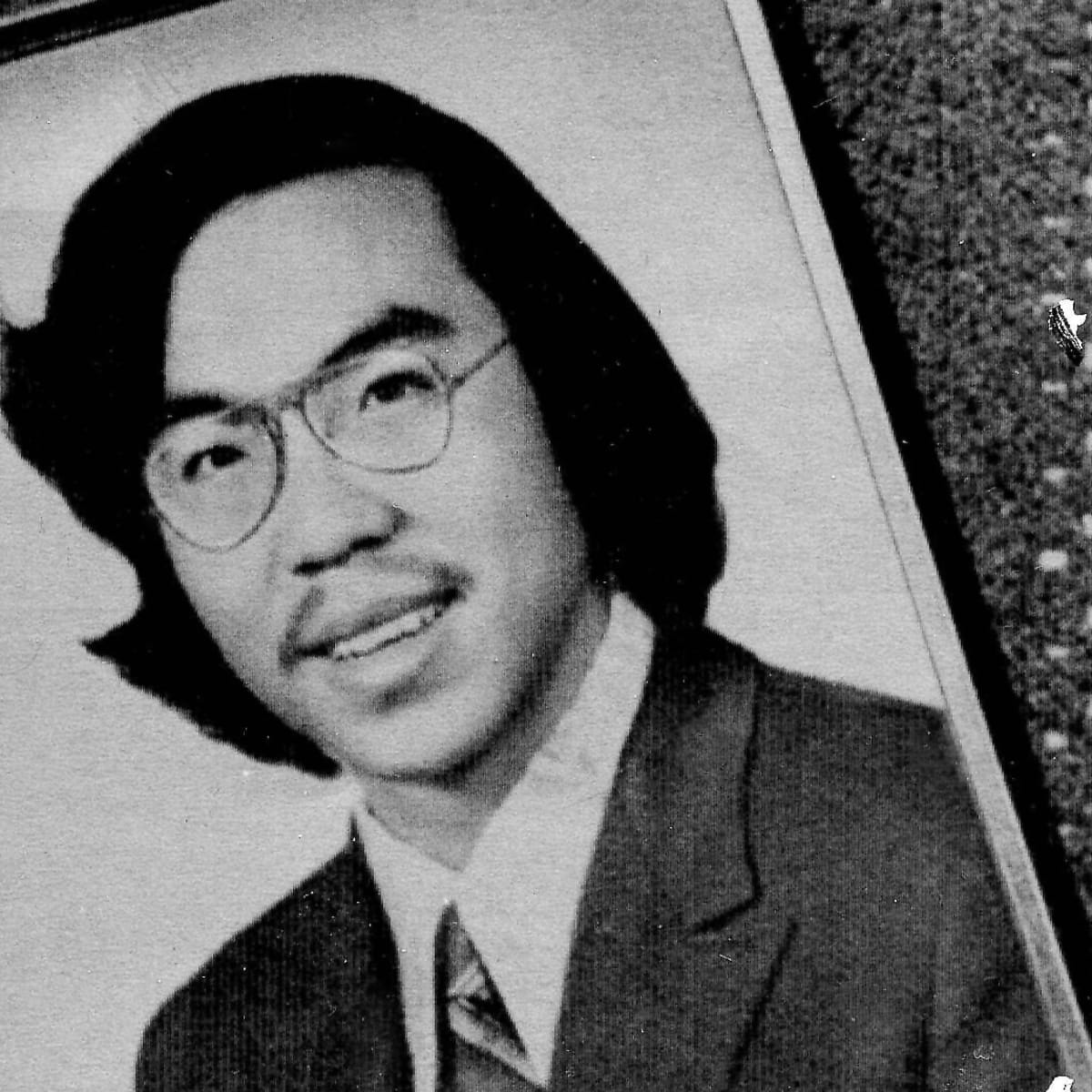Activism
Asian Americans Know Centuries of White Supremacy Too

I’m all for recycling. The good kind. Paper. Plastics. Just not the hate.
But what do we have with us in Atlanta?
It’s Vincent Chin, you know the Asian American killed in Detroit in 1982 with a baseball bat by
a white auto worker angry at Japanese imports taking over the market.
But Chin was Chinese, not Japanese. Details.
That’s why I say Atlanta was Vincent Chin with the names changed.
Soon Chung Park, 74, worked at Gold spa.
Hyun Jung Grant, 51, the single mother who worked at Gold Spa to support herself and her two
sons.
Suncha Kim, 69, a Gold Spa worker.
Yong Ae Yue, 63, a worker at the Aromatherapy Spa.
Xiaojie Tan, 49, the owner of Young’s Asian Massage.
Daoyou Feng, 44, an employee at Young’s Asian Massage.
Those six names strike the discordant history of the hateful treatment of Asian Americans in this
country, from the Chinese Exclusion Act in the 19th Century to today.
Asian Americans know hate and racism from their first day in America.
President Joe Biden recognized it. And now suddenly, Biden has become one of the most
pro-Asian American presidents the U.S. has seen since Reagan signed the bill giving Japanese
Americans redress.
Think about that. Did either of the Bushes, Clinton, or even Obama do anything that addressed
Asian American existential angst like Biden?
One thing for sure, the last president was the absolute worst. He slurred Asian Americans and
made us targets.
In contrast, Biden has shined a light on us and made us visible.
He selected Vice President Kamala Harris, who is half South Asian of Indian descent.
As he began his presidency, Biden signed an unusual executive order making sure everyone in
the country knew that the attacks on Asian Americans were wrong and “un-American.”
He came out strong for us in his first national television address a few weeks ago.
And then, after meeting with local AAPI leaders after last week’s shootings in Atlanta, Biden
once again elevated our status simply by showing everyone he has our backs. His remarks are
worth remembering because they put him on record, as he described the impact of Trump
administration rhetoric on the AAPI community.
“It’s been a year of living in fear for their lives,” Biden said of all AAPIs in the country. “Hate
and violence often hide in plain sight and often are met with silence. That’s been true throughout
our history. and that has to change.
“Because our silence is complicity. We cannot be complicit. We have to speak out. We have to
act. For all the good the laws can do, we have to change our hearts.
“Hate can have no safe harbor in America. It must stop. And it’s on all of us, all of us together, to
make it stop.”
Strong words, from no less than the president of the United States.
It’s enough to unite Asian Americans. Is our fear enough to unite a country?
Not with Republicans like Texas Congressman Chip Roy, who couldn’t find the empathy at last
week’s Judiciary Subcommittee hearing to change his heart and join in condemning the murder
of eight people in Atlanta, six of whom were Asian American women.
“My concern about the hearing is that it seems to want to venture into the policing of rhetoric,”
said Roy, a Trump backer who was trying to defend the ex-president’s “China Virus” and “Kung
Flu” remarks.
Asian American voters, a third of whom voted Republican for Trump, should remember this. The
Republicans who remain hell-bent on defending Trump’s big lie–that he won the 2020
election–see “China Virus” as a matter of Trump’s free speech.
And what of the thousands of AAPIs victimized by his hateful turn of phrase?
Rep. Grace Meng (D-NY) let him have it.
“This hearing was to address the hurt and pain of our community, and to find solutions,” Meng
said in a rare show of emotion and passion. “We will not let you take our voice away from us.”
That’s where we are today.
People are angry. And only the Democrats truly seem interested, not just in stopping the hate but
in recognizing it.
This week, Meng and Sen. Mazie Hirono continued to campaign for their Covid Hate Crime Bill
that would have the Justice Department conduct fast reviews of possible hate crime cases. This
was thought up long before the shootings in Atlanta, but it would seem to be perfect timing. The
the bill also sets up an online reporting system in different Asian languages that would stop the
undercounting of hate crimes and make it easy for AAPIs to report them.
Robert Aaron Long, 21, the Atlanta shooting suspect, has been charged with eight counts of
murder and one count of aggravated assault. Long has admitted to the shootings but told police
he was just a religious man battling sex addiction. The shootings Long told police, weren’t
racially motivated.
That’s what they all say.
Ronald Ebens, who killed Vincent Chin with a baseball bat, said the same thing.
Ebens did get off without spending time in jail. Long is being held without bail while the police
continue to investigate.
That does nothing for Asian Americans, still grief-stricken and angry. Hate crime enhancements
could easily be applied if the new Georgia state hate crime statute that expands coverage to
include sex as well as race, is used.
But if that’s not forthcoming, it would definitely send Asian Americans a harsh message of our
real value in this country.
It will also test the community’s strength and courage. What will our response be then? Will
others in the BIPOC feel our pain, join us in alliance, and speak with one voice in unison against
these crimes?
Or will AAPI be left wondering how we get justice for our six sisters killed in Atlanta?
Soon Chung Park.
Hyun Jung Grant.
Suncha Kim.
Yong Ae Yue.
Xiaojie Tan.
Daoyou Feng.
They are our dead, the latest in the sad narrative of Asian Americans in this country since the
19th Century, the agonizing history of recycled hate.
Emil Guillermo is a journalist and commentator. He’s a veteran Bay Area media person and a
former host of NPR’s “All Things Considered.” Go to his blog at www.amok.com for an
interview with Oakland playwright Ishmael Reed about Reed’s new play on the exploitation of
Jean-Michel Basquiat.
Activism
Oakland Schools Honor Fred Korematsu Day of Civil Liberties
Every Jan. 30, OUSD commemorates the legacy of Fred Korematsu, an Oakland native, a Castlemont High School graduate, and a national symbol of resistance, resilience, and justice. His defiant stand against racial injustice and his unwavering commitment to civil rights continue to inspire the local community and the nation. Tuesday was “Fred Korematsu Day of Civil Liberties and the Constitution” in the state of California and a growing number of states across the country.

By Post Staff
Every Jan. 30, OUSD commemorates the legacy of Fred Korematsu, an Oakland native, a Castlemont High School graduate, and a national symbol of resistance, resilience, and justice.
His defiant stand against racial injustice and his unwavering commitment to civil rights continue to inspire the local community and the nation. Tuesday was “Fred Korematsu Day of Civil Liberties and the Constitution” in the state of California and a growing number of states across the country.
One OUSD school is named in his honor: Fred T. Korematsu Discovery Academy (KDA) elementary in East Oakland.
Several years ago, founding KDA Principal Charles Wilson, in a video interview with anti-hate organization “Not In Our Town,” said, “We chose the name Fred Korematsu because we really felt like the attributes that he showed in his work are things that the children need to learn … that common people can stand up and make differences in a large number of people’s lives.”
Fred Korematsu was born in Oakland on Jan. 30, 1919. His parents ran a floral nursery business, and his upbringing in Oakland shaped his worldview. His belief in the importance of standing up for your rights and the rights of others, regardless of race or background, was the foundation for his activism against racial prejudice and for the rights of Japanese Americans during World War II.
At the start of the war, Korematsu was turned away from enlisting in the National Guard and the Coast Guard because of his race. He trained as a welder, working at the docks in Oakland, but was fired after the bombing of Pearl Harbor in 1941. Fear and prejudice led to federal Executive Order 9066, which forced more than 120,000 Japanese Americans out of their homes and neighborhoods and into remote internment camps.
The 23-year-old Korematsu resisted the order. He underwent cosmetic surgery and assumed a false identity, choosing freedom over unjust imprisonment. His later arrest and conviction sparked a legal battle that would challenge the foundation of civil liberties in America.
Korematsu’s fight culminated in the Supreme Court’s initial ruling against him in 1944. He spent years in a Utah internment camp with his family, followed by time living in Salt Lake City where he was dogged by racism.
In 1976, President Gerald Ford overturned Executive Order 9066. Seven years later, the 9th Circuit Court of Appeals in San Francisco vacated Korematsu’s conviction. He said in court, “I would like to see the government admit that they were wrong and do something about it so this will never happen again to any American citizen of any race, creed, or color.”
Korematsu’s dedication and determination established him as a national icon of civil rights and social justice. He advocated for justice with Rosa Parks. In 1998, President Bill Clinton gave him the Presidential Medal of Freedom saying, “In the long history of our country’s constant search for justice, some names of ordinary citizens stand for millions of souls … To that distinguished list, today we add the name of Fred Korematsu.”
After Sept. 11, 2001, Korematsu spoke out against hatred and discrimination, saying what happened to Japanese Americans should not happen to people of Middle Eastern descent.
Korematsu’s roots in Oakland and his education in OUSD are a source of great pride for the city, according to the school district. His most famous quote, which is on the Korematsu elementary school mural, is as relevant now as ever, “If you have the feeling that something is wrong, don’t be afraid to speak up.”
Activism
WOMEN IMPACTING THE CHURCH AND COMMUNITY
Juanita Matthews, better known as “Sister Teacher,” is a walking Bible scholar. She moved to California from the great state of Arkansas in 1971. Sister Teacher has a passion for teaching. She has been a member of Bible Fellowship Missionary Baptist Church since 1971.

Sister Juanita Matthews
55 Years with Oakland Public School District
The Teacher, Mother, Community Outreach Champion, And Child of God
Juanita Matthews, better known as “Sister Teacher,” is a walking Bible scholar. She moved to California from the great state of Arkansas in 1971. Sister Teacher has a passion for teaching. She has been a member of Bible Fellowship Missionary Baptist Church since 1971. She followed her passion for teaching, and in 1977 became the lead teacher for Adult Class #6. Her motto still today is “Once My Student, Always My Student”.
Beyond her remarkable love for the Lord, Sister Teacher has showcased her love for teaching by working for the Oakland Unified School District for 55 years, all but four of those years spent at Emerson Elementary and Child Development School. She truly cares about her students, making sure they have the tools/supplies needed to learn either at OUSD or Bible Fellowship Missionary Baptist Church.
She’s also had a “Clothes Closet Ministry” for 51 years, making sure her students have sufficient clothing for school. The Clothes Closet Ministry extends past her students, she has been clothing the community for over 50 years as well. She loves the Lord and is a servant on a mission. She is a loving mother to two beautiful children, Sandra and Andre. This is the impact this woman of God has on her church and the community.
Activism
Oakland’s ‘Green the Church,’ Others, Host a Climate Revival
On April 20, Oakland’s Green The Church California (GTC) and the Center For Food, Faith and Justice will celebrate Earth Day and present a Climate Revival event titled “Growing Healthy Communities From Soil To The Soul” at McGee Avenue Baptist Church at 1640 Stuart St, Berkeley, CA. The day will include inspiring talks, interactive workshops, networking opportunities, and a special panel on Food Sovereignty and Global Food Resilience.

Growing Healthy Communities from Soil to the Soul in Berkeley
By Y’Anad Burrell
On April 20, Oakland’s Green The Church California (GTC) and the Center For Food, Faith and Justice will celebrate Earth Day and present a Climate Revival event titled “Growing Healthy Communities From Soil To The Soul” at McGee Avenue Baptist Church at 1640 Stuart St, Berkeley, CA,
The day will include inspiring talks, interactive workshops, networking opportunities, and a special panel on Food Sovereignty and Global Food Resilience.
The keynote speaker is Rev. Danté R. Quick, PhD, senior pastor of First Baptist Church of Lincoln Gardens in Somerset, N.J. Quick is well known in the Bay Area, having served for more than 10 years as pastor of Friendship Missionary Baptist Church in Vallejo, CA.
Green The Church, founded in 2010 by Rev. Dr. Ambrose Carroll, Sr., and headquartered in Oakland, helps galvanize Black churches and their local communities and leaders to address issues critical to populations historically disengaged from conversations around pollution and health, climate change, and sustainability and energy efficiency.
The organization collaborates with major environmental, sustainability, food security, faith, and community-based non-profit organizations, and is committed to “creation justice”—care and justice for God’s people and the planet—and building the Beloved Community.
Environmental justice has long been a pressing concern for communities of color who bear the brunt of pollution and ecological degradation. Climate change exacerbates these issues, disproportionately impacting vulnerable communities. Recognizing this urgency, Black churches across the country are taking action.
With deep roots in the African American community and its commitment to social justice, the Black Church has become an essential advocate for sustainable practices and policies.
Over the past 14 years, in a powerful collaboration with significant environmental, sustainability, food security, faith, and community-based non-profit organizations, GTC has created a cadre of Black churches engaging in the environmental justice, climate, and sustainability movement.
GTC presently works with more than 1,000 pastors and congregations across the U.S., and groups in the Bahamas, Ghana, Nigeria, and the UK, showing that we can make a difference together.
The partnership between environmental justice advocates and the Black Church extends beyond individual congregations. Green The Church provides resources and support for faith communities seeking to address climate change and promote environmental justice.
Through collaboration, initiatives such as energy efficiency programs, solar installations, and environmental education have been implemented in Black churches nationwide. These efforts reduce the carbon footprint and save money on energy bills, benefiting the congregations and their communities.
The involvement of the Black Church in the fight against climate change is not just a participation, it’s a powerful message that galvanizes action across communities.
By integrating environmental justice into their ministry, Black churches are demonstrating that addressing climate change is not only a matter of science but also of social and moral responsibility, inspiring change at a grassroots level.
For more information, go to: www.greenthechurch.org.
-

 Activism4 weeks ago
Activism4 weeks agoOakland Post: Week of March 20 – 26, 2024
-

 #NNPA BlackPress3 weeks ago
#NNPA BlackPress3 weeks agoCOMMENTARY: D.C. Crime Bill Fails to Address Root Causes of Violence and Incarceration
-

 #NNPA BlackPress3 weeks ago
#NNPA BlackPress3 weeks agoMayor, City Council President React to May 31 Closing of Birmingham-Southern College
-

 #NNPA BlackPress3 weeks ago
#NNPA BlackPress3 weeks agoFrom Raids to Revelations: The Dark Turn in Sean ‘Diddy’ Combs’ Saga
-

 #NNPA BlackPress3 weeks ago
#NNPA BlackPress3 weeks agoCOMMENTARY: Lady Day and The Lights!
-

 #NNPA BlackPress3 weeks ago
#NNPA BlackPress3 weeks agoBaltimore Key Bridge Catastrophe: A City’s Heartbreak and a Nation’s Alarm
-

 #NNPA BlackPress3 weeks ago
#NNPA BlackPress3 weeks agoBaltimore’s Key Bridge Struck by Ship, Collapses into Water
-

 Activism3 weeks ago
Activism3 weeks agoOakland Post: Week of March 27 – April 2, 2024















































